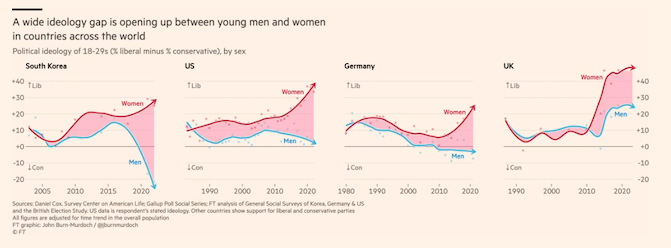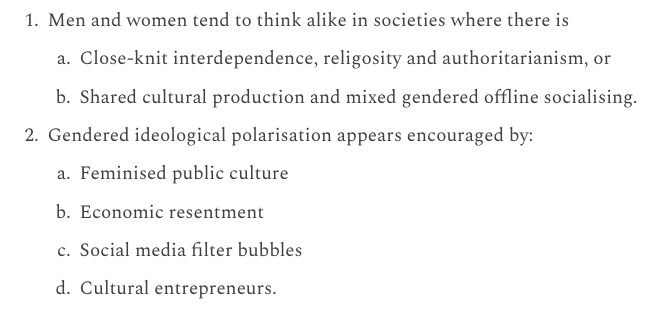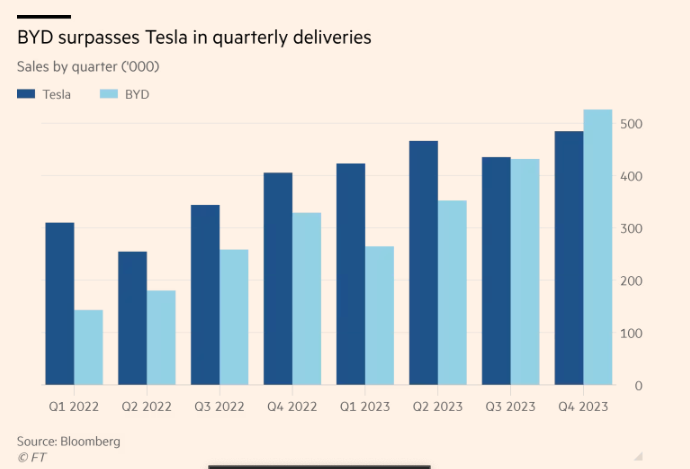We’ve moved our newsletter, formerly hosted on Substack, to this blog.
The (youth) gender divide
Young voters have been a constant theme for this newsletter. One article published recently has caused a great deal of controversy by suggesting that, contrary to popular belief, Gen Z can actually be considered as two distinct groups rather than one. Specifically, women aged 18 to 30 are significantly more liberal compared to their male counterparts [paywall]. This marks a shift from previous decades where both genders were relatively evenly distributed across liberal and conservative ideologies. In fact, the difference in liberal views between women and men in this age group is as high as 30%.

Naturally, a claim such as has proven controversial, with some offering explanations:

And others proposing the data requires more context and analysis.
We thought this was one of the smartest statements on the topic:
it might very well be that, even on cultural issues, a lot of the polls are intrinsically poorly designed to capture what exactly it is that separates young women and men, since they are embedded within an old-fashioned view of what being liberal and conservative means. The fights of our parents are not our fights. Our cultural grievances are not theirs. We need new terms to deal with new times.
Other stories
Our last newsletter focused on how the electric vehicle industry was a significant geopolitical topic, especially as an example of Chinese economic and soft power.
The start of the year brought news that China’s BYD had surpassed Tesla as the world’s biggest EV maker.

Staying with China, and also the youth theme, this article about China’s young people mirrors something we’ve also covered in our newsletter.
More than one in five people between the ages of 16 and 24 are jobless in China, according to official data from August 2023. The government has not released youth unemployment figures since then.
With China’s boom years behind them, millions of young people are confronting a future they did not prepare for – and how they respond will shape the fate of the world’s second-largest economy.
